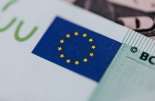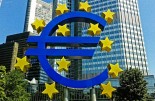MUFG: ECB acts to ease collateral rules ahead of EU Leaders meeting
MUFG: ECB acts to ease collateral rules ahead of EU Leaders meeting

The euro has softened ahead of today’s EU Leader’s meeting undermined in part by the improvement in risk sentiment. It has resulted in EUR/USD testing the bottom of recent tight trading range between 1.0800 and 1.1000 overnight.
The main development late yesterday was the ECB’s pre-emptive decision to mitigate the impact of credit rating downgrades by announcing that it will continue to accept as collateral in its operations, marketable assets and issuers that were investment grade (BBB- or higher) on the 7th April with effect through to September 2021.
It shows clearly that that ECB will act decisively to ensure its ability to conduct monetary policy effectively in the current crisis conditions without being subordinated to the decisions of ratings agencies. It should help ensure that ratings downgrades do not lead to a collateral crunch that would impair bank lending. At the same time, the ECB said it “may decide to take additional measures to further mitigate the impact of credit rating downgrades, particularly with a view to ensuring the smooth transmission of its monetary policy in all jurisdictions of the euro area”. It will heighten speculation that the ECB could soon decide to include fallen angels into their Pandemic Emergency Purchase Programme (PEPP). The inclusion of Greek government bonds in PEPP has already set a strong precedent for the inclusion of non-investment grade purchases.
The ECB’s announcement comes ahead of S&P’s rating review announcement for Italy on Friday. ECB support continues to help ease downside risks for the euro-zone economy and the euro. To date the euro has been one of the better performing currencies during the COVID-19 crisis.
EU Leaders are likely to leave pressure on ECB to step up support
Market participants though remain concerned over the negative implications from the COVID-19 crisis for debt sustainability in the euro-zone. Over the past week, peripheral yield spreads have re-widened back towards or beyond levels that were in
place prior to the ECB announcing their expanded asset purchase programmes last month. Absolute yields though remain low at the current juncture with the Italian and Spanish 10-year government yields at 2.10% and 1.15% respectively. The fiscal cost of the COVID-19 crisis response continues to build. According to an II Sole report, the Italian government’s request for an additional stimulus of EUR55 billion to be put before parliament includes deficits estimates of over 10% of GDP and public debt at 150-155%. The unfavourable debt dynamics are increasing pressure on European governments to provide a more united response to combat the crisis.
Market participants remain unconvinced by the package of measures announced at the last Eurogroup meeting (click here). Media reports suggest that EU Leaders will today debate setting up an EU Recovery Fund to strengthen their joint response.
France, Italy and Spain have again pushed for coronabond issuance, and in particular Spain has proposed that the EU issue perpetual bonds worth up to EUR1.5 trillion to raise funds for crisis hit countries. Less ambitious proposals include using guarantees from the EU budget to raise funds which could then be channelled to affected countries as loans. A final decision on the structure of the EU Recovery Fund is unlikely today. Pressure is likely to increase on the ECB to step up support again for the peripheral debt market and thereby contain downside risks for the eurozone economy and the euro.










